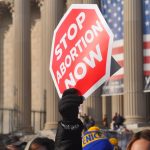Recently, in a surprising and concerning move, Joe Biden made a last-minute decision to pardon Dr. Anthony Fauci, which has raised many eyebrows and questions. Some individuals have compared Fauci to the notorious Josef Mengele, a comparison that may seem extreme at first glance, but the evidence presented suggests otherwise. Fauci’s actions during the COVID-19 pandemic have raised serious concerns about his ethics and motivations.
Fauci’s approach to handling the pandemic has been criticized for undermining public trust in federal medical institutions. His decisions, such as advocating for lockdowns and mandatory injections, have been seen as infringing upon Americans’ constitutional rights, including freedom of speech, religious freedom, and the right to assemble. Additionally, Fauci’s push for experimental mRNA gene treatments and discouragement of alternative approaches like Ivermectin have drawn criticism for overstepping his bounds and dictating medical decisions.
https://twitter.com/TiffMoodNukes/status/1881333531428983169
Critics have accused Fauci of acting as a tyrant, both in terms of public and medical matters. His insistence on certain protocols and treatments has been viewed as oppressive and outside the realm of scientific evidence. Furthermore, Fauci’s significant financial gains during the pandemic, along with his close ties to pharmaceutical companies, have raised questions of potential corruption and conflicts of interest.
Biden’s decision to pardon Fauci has been met with skepticism and confusion. Some see it as a way to protect Fauci from potential legal consequences, while others believe it sends the wrong message about accountability and responsibility. The implications of this pardon, along with Fauci’s actions throughout the pandemic, have added fuel to the ongoing debate about his role and influence in public health.
In conclusion, the pardon of Dr. Fauci by President Biden has sparked a wave of controversy and debate. The concerns about Fauci’s actions during the pandemic, coupled with the implications of his pardon, highlight the importance of transparency, accountability, and ethical leadership in times of crisis. It is essential to continue examining and questioning the decisions made by public officials to ensure the well-being and trust of the American people.




